“If you build it, [they] will come.”
Jim Ross-Nazzal, PhD and Students
INTRODUCTION
When he was 22, Cameron Crowe had an idea to go back to high school in order to see and write about the lives and experiences of then today’s high school students. He got a contract from a major publisher and with the approval of his employer, Rolling Stone, and the school’s administration, Crowe relived his senior year in a San Diego high school. His book, Fast Times at Ridgemont High came out in 1981. The movie followed one year later. That was Crowe’s first screenplay and was Amy Heckerling’s directorial debut. One of the characters was a worldly, self-assured, ticket scalper named Mike Damone. Damone had a five point plan that he shared with his introverted friend nicknamed Rat. Point three of that plan was “Act like wherever you are – that’s the place to be.” And when he says that line he nods, as if in agreement with himself as he looks around the room while opening his arms and asks rhetorically, “Isn’t this great?”
But in this story, our story, and hopefully without sounding too boastful, prideful, or flag-waving, America IS the place to be. Just ask any of the tired and/or poor “huddled masses yearning to breathe free” who enter this country legally or illegally or live in this country legally or illegally. Or whose relatives came to this country legally or illegally in order to give their offspring that chance to bask in the hope proclaimed by the Mother of Exiles. Like my dad.
In 1948, at the age of six my dad came to the US along with his two-year old sister and his parents, from Palestine. Both my dad and aunt were born in Jerusalem. They were not “wretched refuse.” According to my paternal grandfather, very middle class in Palestine and they arrived with some economic means, my grandfather and other family members having sold their properties and divested in other interests before coming here. They entered the country legally, I must add. My paternal grandfather was a US citizen.
They settled in Austin, Texas, and my grandparents raised my dad to be an American. He learned English – real fast. And he learned to enjoy American food and American culture and American sports, especially basketball. But his dad disappeared six years later and so at 12 my dad started working. As soon as he graduated high school (1960) he enlisted in the Air Force in part out of patriotism -it was the Cold War, after all, and he was an American of his time thus he wanted to join the fight against Communism and all others determined to cause havoc to his adopted country. And, he joined the military in part to be able to send more money home to his mom and siblings.
During Basic Training in San Antonio, two FBI agents showed up one day. They took my dad to a building on base, produced a partially burned copy of his birth certificate (something that he did not have when the family came to the US) and asked him who he was working for. It seems that due to the citizenship laws at that time, when my paternal grandfather, who was living in Jerusalem when World War II began, joined the Black Watch (a Scottish unit) and fought in North Africa, that suspended his citizenship as doing so was technically illegal for US citizens. Although he promised to fix it, my grandfather never corrected the matter thus, my dad was an illegal alien and had been living in this country illegally for 12 years. The FBI alerted him to these facts when they detained him during his Air Force Basic Training in San Antonio in 1960. Eventually my dad became a naturalized citizen, along with his sister and mom. So, does that make me a first-generation US-born citizen on my dad’s side of the family? More importantly, why does the status of “legal” or “illegal” matter?
The idea of “legal” or “illegal” is a recent phenomenon. As you will find out there was no such thing as ICE, or the Border Patrol, or any other kind of federal law enforcement along the US-Mexico border until around 1922 or so because there was no need for such a thing because of our immigration laws. For the majority of US history, people from the Americas would come to the US without visas or passports or any other documents or papers. They could stay as long as they’d like. There was no way to illegally enter the country because any way people from the Americas entered the country was legal. Their stay in the US was legal. There were no limits on how many Bolivians could come up to California during the gold rush. There were no limit on how many Colombians could escape their Civil War by coming to the US. By the way, it was those Colombian immigrants who connected their Civil War with the efforts of the Union and Latinos throughout California who feared California being taken over by the Confederacy, with the success of the people down in Puebla, Mexico in May of 1862 to popularize Cinco de Mayo in the American West, which spread East during the American Civil War as a metaphor for how the Union will deal with the invading Confederates.[1]
As David Letterman used to say, “Wake the kids and call the neighbors.” I want everyone to pay particular attention to this next part.
Once upon a time, a really white, really privileged, really wealthy, really large slave owner, really seemed to believe that in one aspect of the American experiment, there would be equality. The United States would welcome everyone, from everywhere, for whatever reason because, “this is the place to be.”
In 1783, George Washington said “The bosom of America is open to receive not only the opulent and respectable stranger, but the oppressed and persecuted of all nations and religions, whom we shall welcome to a participation of all our rights and privileges, if by decency and propriety of conduct they appear to merit the enjoyment.” Read that one again folks and let those words burn into your minds: “the oppressed and persecuted of all nations and religions.”
That was the position of a slave owner, (who just spent the last eight years at the reigns of the Continental Army beating back foreign invaders, the Hessians), who enjoyed foreign assistance such as his own German, the Baron von Steuben, someone known to Houstonians (and people living on and near Galveston Island) the Spanish administrator of Louisiana Bernardo de Gálvez, the 19 year old French aristocrat the Marquis de Lafayette, and two Polish-born revolutionaries Tadeusz Kościuszko and Casimir Pulaski, to name a few of the many nationalities that came (legally or illegally?) to the cause of liberty. Was the United States, newly launched in the early summer of 1776 already the place to be?
Casmir Pulaski wrote to General George Washington something along those lines: “I came here, where freedom is being defended, to serve it, and to live or die for it.”[2] Clearly, this was the place to be.
We need to go further back than 1776. In fact, this has always been the place to be. Before the United States existed, this was the place to be. The Puritans aboard the Arbella did not want to migrate to any other established, built up, civilized corner of the British realm. They wanted to come here because this was the place to be and their leader, John Winthrop, told them so in his speech “A Modell of Christian Charity” in 1630. Thomas Paine was annoyed with the George III, but was comfortable in England. Ben Franklin, in 1774, talked Paine into moving to Philadelphia. Because of that, either by coincidence or Franklin’s ability to see the future, Paine becomes the intellectual linchpin of the Revolution. He turns the War into a Revolution. I hink John Adams said something like “War is easy. Revolution is hard.” Americans had been fighting the “war” for a few years. They lacked that reason to revolt, however. Paine provided that reason in an aptly named publication, Common Sense.
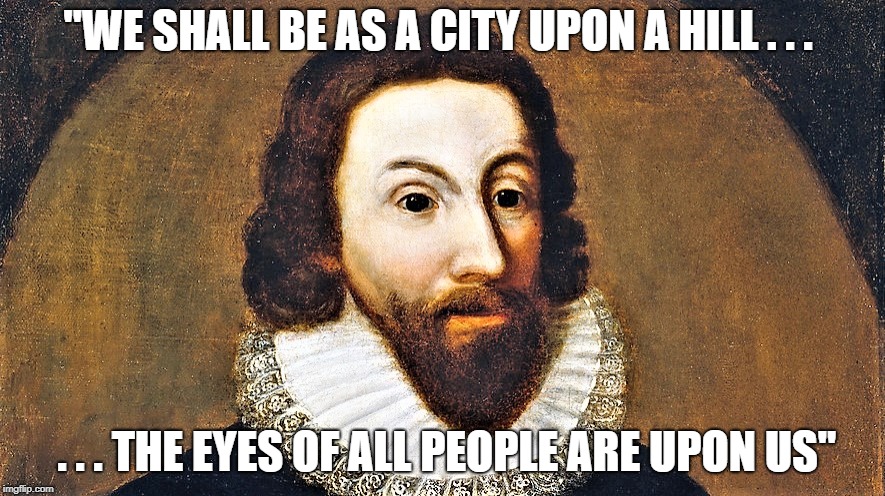
There were three major revolutions simultaneously: the American, Haitian, and French. In the eyes of Americans, the French Revolution went too far because the people lopped off the heads of the reagents. That was unnecessary. In Haiti, slaves rose up against white people (not a good precedent according to Americans) and so in the eyes of not just Americans but many in Europe, only the American Revolution was the successful one. And so, European travelers came to the new country to visit, to explore, to see what all the commotion was about.
There is an idea, dusted off by some politicians when election season begins, arguing that there is nothing greater, nothing more awesome than American freedom, American democracy, America itself because God has ordained it to be. That’s called American Exceptionalism. That idea has its roots in Winthrop’s 1630 speech.
As a result on the 1890 census, the federal government announced that the West was closed -no more room for anyone. In 1893, an historian at the University of Wisconsin, Frederick Jackson Turner, wrote about the significance of the American West. He did not use the phrase, but he was talking about American Exceptionalism. That American democracy, liberties, everything was able to evolve because of the existence of our West -something that no other country had. Thus suggesting a uniqueness or a mission of this country. Five years later we were at war with the Spanish to get that new West. It didn’t work out for any of the parties. In 1941, Henry Luce, the publisher of Time and Fortune magazines and the son of missionaries called for an end of isolation and protectionism. He called for the beginning of the American Century. 100 years of world leadership of American economy, democracy, and culture. Of America leading the world. No surprise that the son of missionaries called for the US to lead a crusade of protecting the world while also spreading American values and advancing American economic interests. In the case of economics, we had lost half of our trading partners as a result of the realignment of the world following World War II. The Cold War.
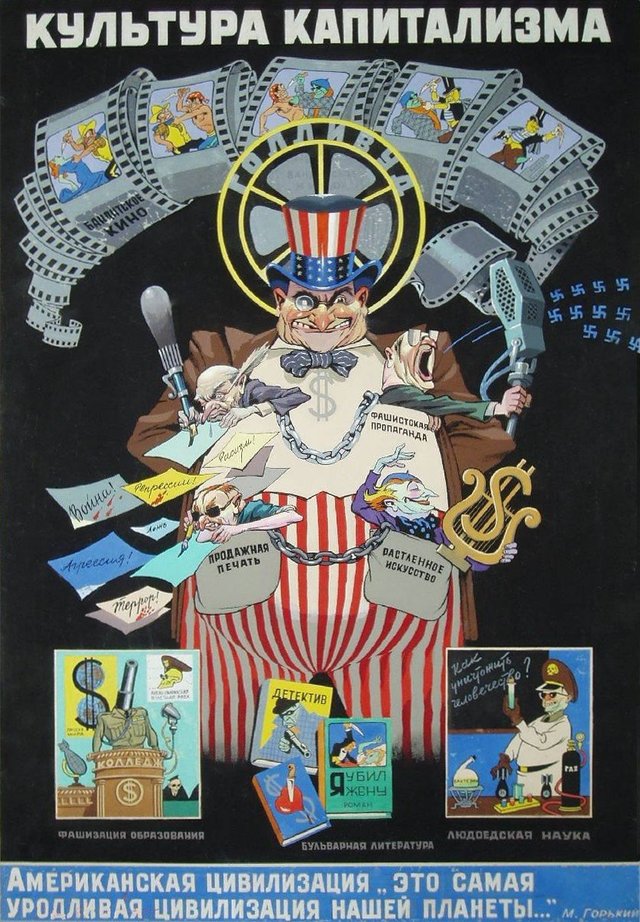
Luce, like President Harry Truman, Eleanor Roosevelt, General George Marshall and so many Americans knew that when the United States engaged in the policy of isolationism, when America was not leading the world economically and militarily, bad things happened: the rise of Fascism, Nationalism, genocide, and World War II. And in the United States there was a loud movement, with rock star personalities attached such as the aviator Charles Lindbergh and actress Lilian Gish, that gave tacit support to the Fascists and Nationalist leaders and dictators in Europe. Their speeches and publications contained anti-Semitic/anti immigrant messaging. They called for the US to pull up its drawbridge and to create fortress America. They called themselves the America First Committee. The Japanese attack at Pearl, in which over 2,000 Americans died half of which were on the USS Arizona, proved the America First mentality to be dangerous and wrong. Before Lindbergh’s group the KKK used the “America First” slogan. But so too did Presidents Woodrow Wilson (D) and William McKinley (R).
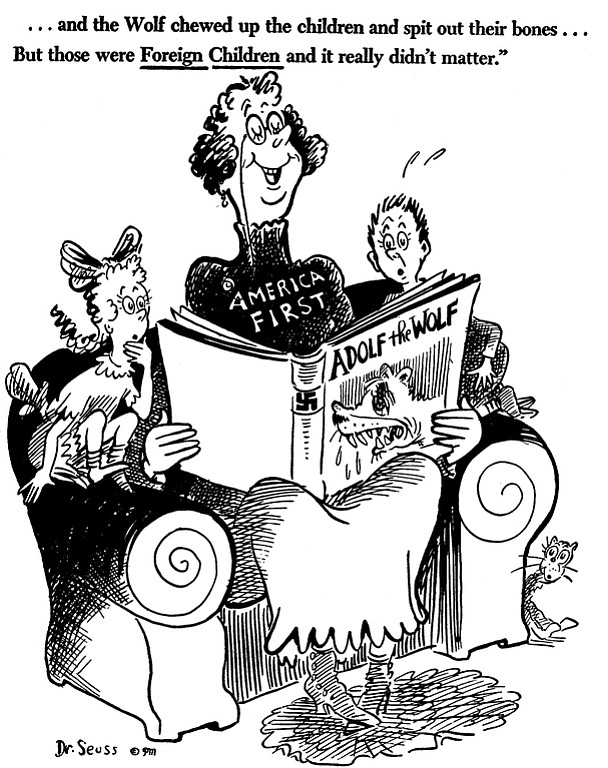
When World War II ended, the United States stood between the Russians who were bent on dominating the world, those who needed help, and western Europe, Japan and South Pacific nations, and Southeast Asia. In 1947 General George Marshal gave the commencement address at Harvard. He spoke for only 15 minutes. In those 15 minutes he proposed a plan would save our allies from the Russians and propel the United States along the path of that American Century, leading formal international coalitions (NATO) and temporary ones (Operation Desert Storm) in defense of our principles. Conceiving, writing, and directing international economic treaties that were a boon to the economies of American state that did not have to turn to state income taxes (NAFTA – initiated under the presidency of Ronald Reagan). And, the since the end of World War II, Luce, Truman, Marshall, and others demanded that the US lead the way in international relief (such as USAID). Looking at old news films, it seemed that the US was the first to bring relief to countries hit by natural disasters. 100 pound white sacks with the letters USAID stamped upon them. I remember seeing those on TV when I was a kid and was so moved that I routinely gave my Christmas money to whatever relief operation the US government was involved with.
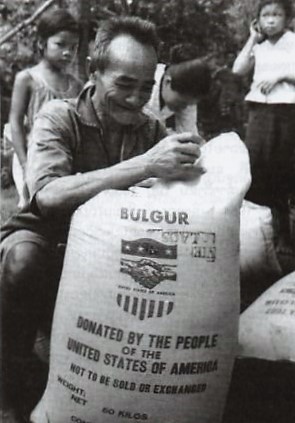
And although everyone could not come to the US, everyone wanted to embrace American culture: music, television, movies, clothes. But the big three, the most iconic images of America, the most sought after products were Levis, Coca Cola, and Harley Davidson motorcycles. We were prepared to repulse a Russian invasion of Europe through the Fulda Gap (a lowland between East and Wet Germany that would provide sufficient area for Russia and its Communist allies to dive their tanks into Frankfurt, with an eventual target of Paris) while Russians are wearing Levi jeans, drinking Coca Cola and riding Harley Davidson motorcycles. All black market products. Even Russians who were part of the Politburo embraced American culture because America was the place to be, even if as close as they could get was in their imagination.
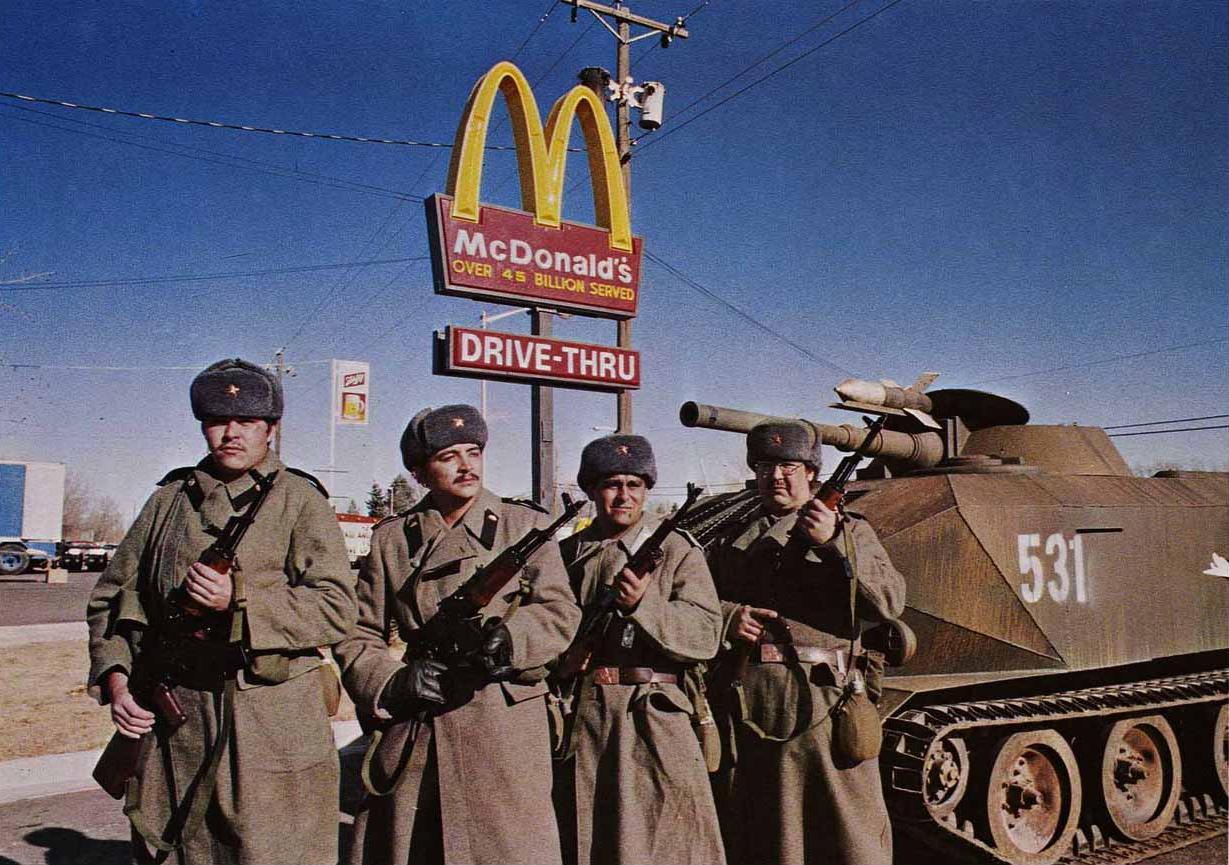
But we led the world and we beat back the Russian threat. At least the Russian threat of 1945-1990. The Cold War. No. Either the Old Cold War or the First Cold War. Because the New Cold War or the Second Cold War began in full swing in 2014. 2014 is when the Justice Department reported that Russian actors and agencies first announced a plan to interfere in the 2016 election. And, Luce’s American Century ended when the vote of the people (the popular vote) was ignored for the fifth time in US history and the candidate who was rejected by the American people secured the most votes in the Electoral College became the next bearer of the national seal. What Luce called for, what General Marshall envisioned, what countless Americans and our allies and partners in Canada, Mexico, NATO and in other parts of the world sacrificed for, came to an end.
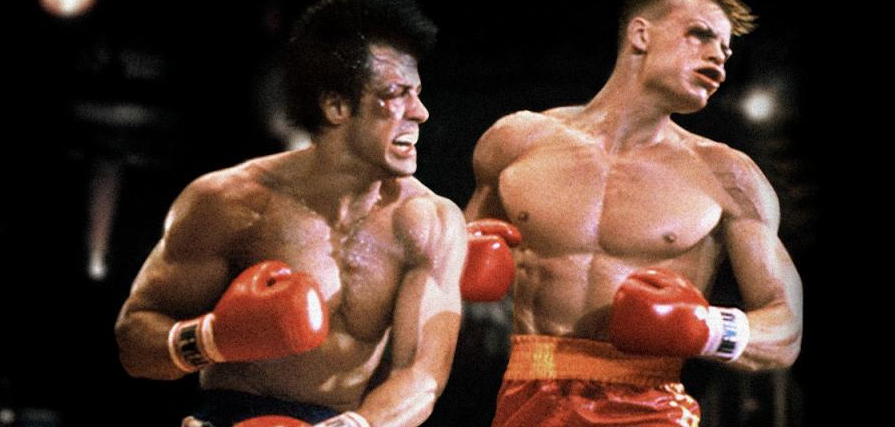
Starting shortly after the inauguration in 2017, Congress passed legislation, the President signed Executive Orders and Congress did not challenge a single one of those Executive Orders through counter legislation. The actions of the majority party effectively reversed US economic history and challenged US economic theory that went back to George Washington: the US would no longer support a market driven economy and seek free trade. The US would engage in laissez-faire economics and would give the Trickle Down theory one more shot. In other words, a return to what appeared to be the Gilded Age relationships among government, industry and people. The ultimate Trickle Down microcosm.
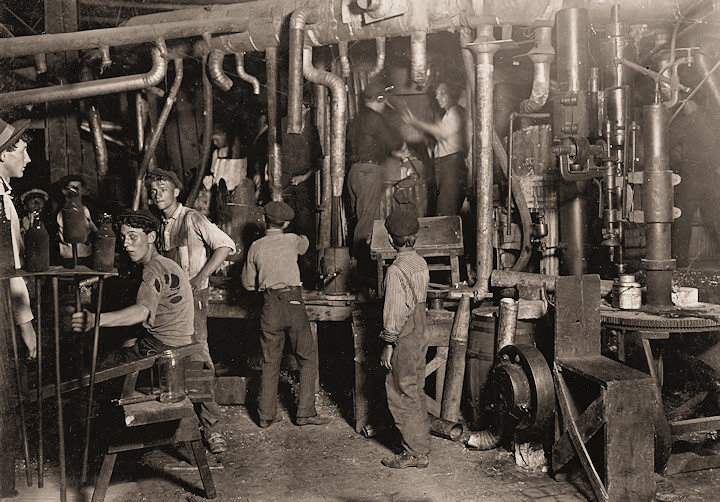
9 P.M. in an Indiana Glass Works, Aug. 1908
Through its actions (and inaction) the controlling political party moved away from capitalism and towards mercantilism. And the controlling party rejected central tenets of American capitalism that had been in place since George Washington that had been supported by Federalist, Jeffersonian, Democrat, Whig, and Republican presidents such as free trade. The international mission of the US economy was further emphasized most historically by such presidents as Teddy and his cousin Franklin D. Roosevelt, Woodrow Wilson saw the US as a civilizing factor in the world, and Richard Nixon who opened trade with China and compelled the Russia leader Leonid Brezhnev to allow US wheat farmers to sell their products to the Russian people. Rather have we returned to protectionism, tariff wars, and were rebuilding Fortress America using the old “America First” slogan, with just a hint of the old Lindbergh era antisemitism, anti immigrant, anti non-white, anti non-English speaking?

Trump lobed grenades behinds his Fortress America in the hopes of stunning his enemies to the negotiating table, such as with NAFTA. Trump called Canada a “threat to national security.” Canada’s Prime Minister Justin Trudeau responded that Trump’s allegation that his country was “a national security threat [is] insulting and unacceptable.”[3] Like many Americans, as I’ve come to understand from years in the classroom, Trump’s knowledge of history is lacking. He thought Canada invaded and attacked the US in The War of 1812. “Didn’t you guys attack and burn down the White House?” Trump said in a phone call to Canada’s leader Trudeau.[4] Those were British troops, not Canadian troops. The US was fighting the British. The War of 1812 is known as the Second American Revolution. That was our second war with the British. Not our first war against Canada. Are you taking notes?
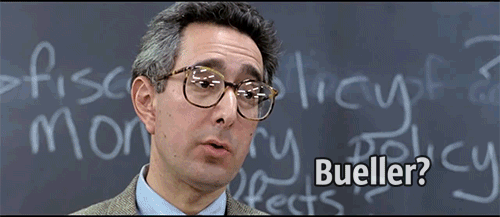
Individuals from that “national security threat” were torn apart by German machine guns at Normandy on June 6th, 1944, just like Americans. The Canadian Edward Clutesi who belonged to the Tseshaht First Nation died in Normandy. Canadians fought and died with Americans in Korea, as well. Private Elliot Gordon MacKay was 17 when he was killed in 1951. His brother died in Korea as well. Canadians fought in the American war in Vietnam. And 134 Canadians died trying to advance US foreign policy such as Rob McSorley, who joined the US Army in 1968. Two years later he will be killed in combat defending the United States. In 1968 Donald Trump graduated from college and produced a document that ensured he would never have to defend the United States, not like the Canadian Rob McSorley who was prepared to die to protect the interests of the United States.
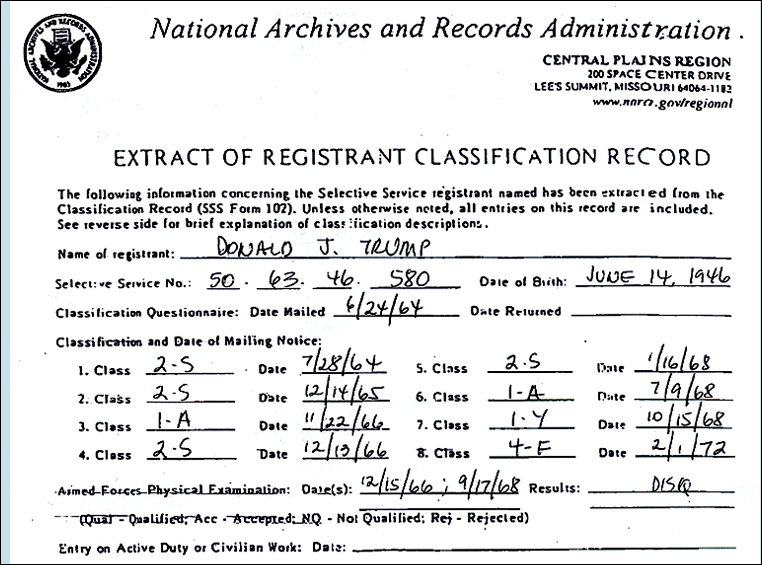
Not everything found on the internet is accurate. How do you know what you know?[5]
Canadians heeded President George H.W. Bush’s call and fought and died in the Gulf War. Canada came to our defense on September 11th. Called Operation Yellow Ribbon, Canada safely landed between 224 and 259 aircraft and sheltered between 30,000 and 45,000 people (clearly exact numbers are hard to come by). They didn’t take the children from their parents, by the way. Nor did Canada ask for any documentation in our hour of need. They just provided assistance. Canada fought with us in Iraq and Afghanistan. Canadians died fighting for American goals. Canadian parents sacrificed their sons and daughters for this country. For example, Nichola Goddard was Canada’s first female combat death. She was a Forward Observer for an artillery unit. A piece of shrapnel hit her in the head during a firefight in Kandahar in May 2006.
Canadians, individuals from that “national security threat,” fought with, for, and died to protect US interests. By the way, the highest award in the US military is the Medal of Honor. A little more than 700 Medal of Honor recipients have been immigrants -people who were not citizens of the US. I am still trying to find out how many immigrants are buried at all US national cemeteries in the US and around the world. So people who are not citizens are perfecting willing to die for this country. Those are exceptional people.
Why would foreigners, not even immigrants, be perfectly willing to lay down their lives for the United States?
That is the pull of this country. There is our exceptionalism. The United States is exceptional not because we think we are exceptional. Not because we think some deity has ordained some particular piece of the Western hemisphere for a particular group of primarily western European rooted people. God, ladies and gentlemen, is not an escrow officer.
No, Winthrop got it right. His group was to build that City upon the Hill. That beacon was indeed to attract others to join us. Not a light to shine upon ourselves as if to say “Hey everybody, look at me! I’m awesome!” Winthrop knew that if his Puritan community built it, they would come. In 1989, Kevin Costner starred in the movie Field of Dreams in which he plays a corn farmer in Iowa who hears a voice saying “If you build it, he will come.” Over and over again. Then he starts seeing visions of what looks like a baseball field. So he does builds a baseball field. And then a baseball player walks out of the corn field and them several follow. These are members of the 1919 Chicago White Sox who were banned from baseball for allegedly throwing the World Series. I think Costner is the only one who can see these long dead baseball players. Well, the famous line of the move is “If you build it, he will come.” The “he” is Costner’s dad. Well, whaddya’ know. Dad shows up. They play catch. “He” did come. Father and son come together over a game of baseball. But then the camera pans up and back and we see a never ending line of headlights coming towards the field.
“If you build it, they will come” and that’s what happened. That is, again, American exceptionalism. Winthrop was trying to ease the anxiety of his nervous parishioners. They thought God was sending them to a literal paradise. No. It was gray, cold. The animals looked mad. The Indians looked even more mad than the animals. “If you build it, they will come.” Winthrop and his followers did build it and they, and you and I, did come.
Again with Washington, but I think it is important to give a slave owner at least a cursory second chance. Look at this: “We cannot build a unified country by inciting people to anger, or playing on anyone’s fears, or exploiting the issue of immigration for political gain. We must always remember that real lives will be affected by our debates and decisions, and that every human being has dignity and value no matter what their citizenship papers say.”
In August of 2018 Attorney General Jeff Sessions announced the Zero Tolerance policy by misquoting the apostle Paul in Romans 13, separating parents from children which eventually resulted in having to use DNA testing to reunite children with parents and even to bring parents back from Central American countries in order to run the tests. And, by the way, parents were being deported while children were here in the US. All the while Donald Trump was wondering “Why do we want all these people from ‘shithole countries’ coming here?”[6]
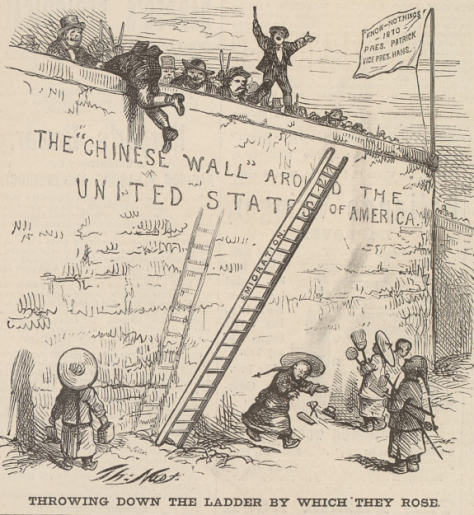
Besides “shithole” being relative, we want those who strive to come here to come here because those who are here (regardless if they are Americans by birth, naturalized Americans, permanent residents, or living in the shadows) and those who want to come here have something in common. Probably penned best by Lord Tennyson “To strive, to seek, to find and not to yield.” Americans are not an overtly contemplative people. They are doers. Maybe we should think a bit longer, plan a bit more carefully. But we are a people of action. We pan as we go? We are on the go nonetheless.
We strive, we seek to better ourselves, our community and our country. And we never stop trying to make things better for us and for our fellow citizens. Those who want to come here, those who try to come here, those who succeed in coming here, share that central tenet of Americanism: we do not yield in working to leave our beacon of hope better than we found it both for those who are here and those who yearn to join us because “[t]he eyes of all people are upon us,” according to John Winthrop in 1630. [7]
In 1835, a German tourist named Francis Grund came to the US to see what all the hub bub was about. She, like thousands of other tourists, was curious how a back water province of the British Empire could defeat the largest army in the world, and was fascinated by a new type of democracy with new rights such as those enshrined in the First Amendment -there was no such “First Amendment” in any European country at that time. But Ms. Grund was more interested in observing people than documents, like so many European visitors who came before her. Through the endless debates on what the authors meant when they penned the the First and Fifth Amendments, and the waves of reform movements that challenged and changed Americans ideas on, for example, religion, political rights, education, gender relations, childhood, property rights, and slavery, Grund seemed to have concluded that Americans took the advice of Tennyson. She wrote, “Americans love their country not as it is, but as it will be.” That’s it. That’s what it means to be an American: ” . . . but not to yield.”
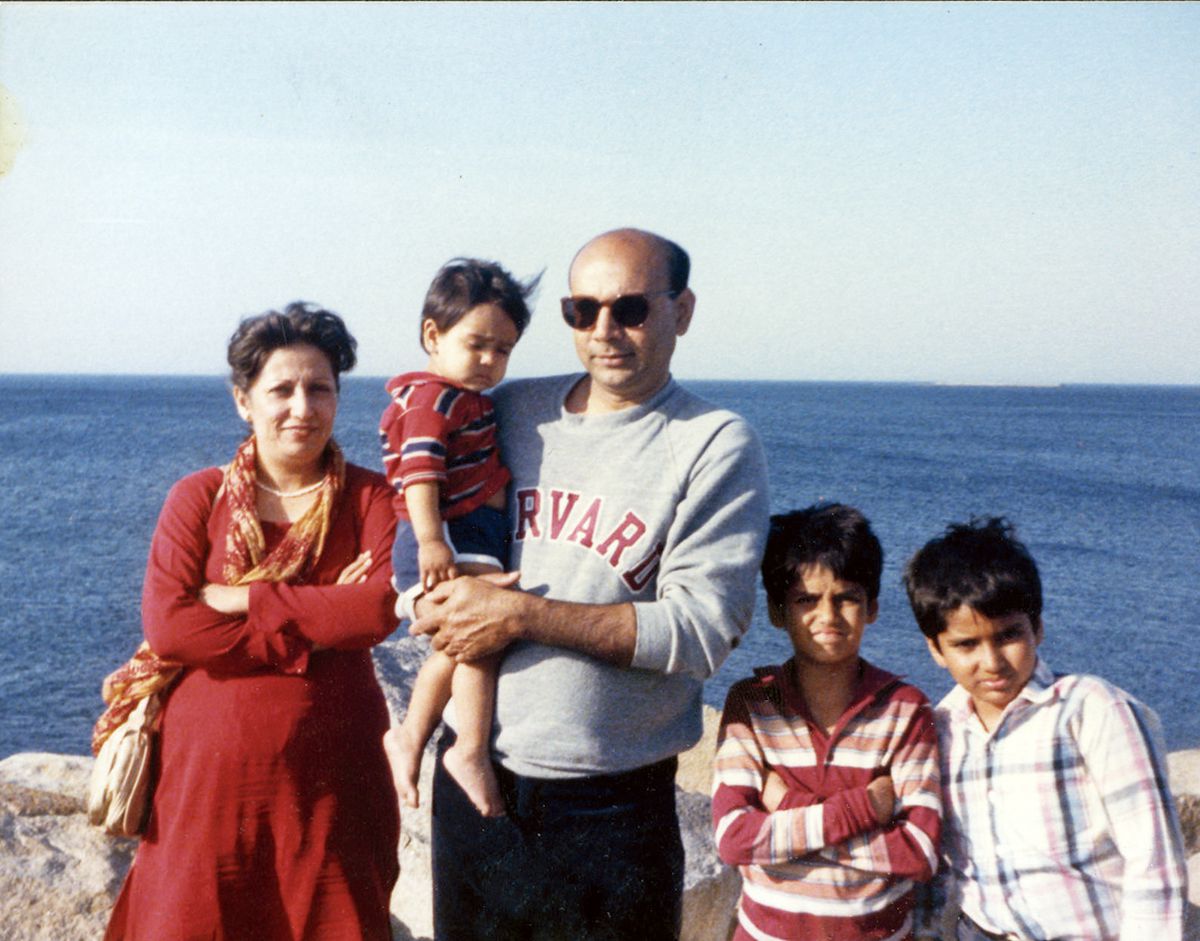 Kizhir Khan and family. Humayun, the American-born middle son, joined the US Army upon graduation from the University of Virginia. In 2004 Captain Humayun Khan was killed by a suicide bomber as he protected his troops from the blast. Sacrifice is one way to help make this country as it will be.
Kizhir Khan and family. Humayun, the American-born middle son, joined the US Army upon graduation from the University of Virginia. In 2004 Captain Humayun Khan was killed by a suicide bomber as he protected his troops from the blast. Sacrifice is one way to help make this country as it will be.
Winthrop and the Puritans built it and we came. From everywhere. For a myriad of reasons. Some to escape poverty or war or degradation or racism, ethnic cleansing or the violence inherent in Nationalism. Some came to join us to add their voices to our choir of inventors, entrepreneurs, entertainers, athletes, and just to live their lives as they see fit as eventual naturalized citizens (such as my dad and his mom) or permanent residents (such as an uncle of mine who was a permanent resident from roughly 1985 until 2011 until he became a US citizen). The vast majority of us were born here and thus we are citizens upon birth because of the Fourteenth Amendment: “All persons born . . . in the United States, and subject to the jurisdiction thereof, are citizens of the United States and of the State wherein they reside.”
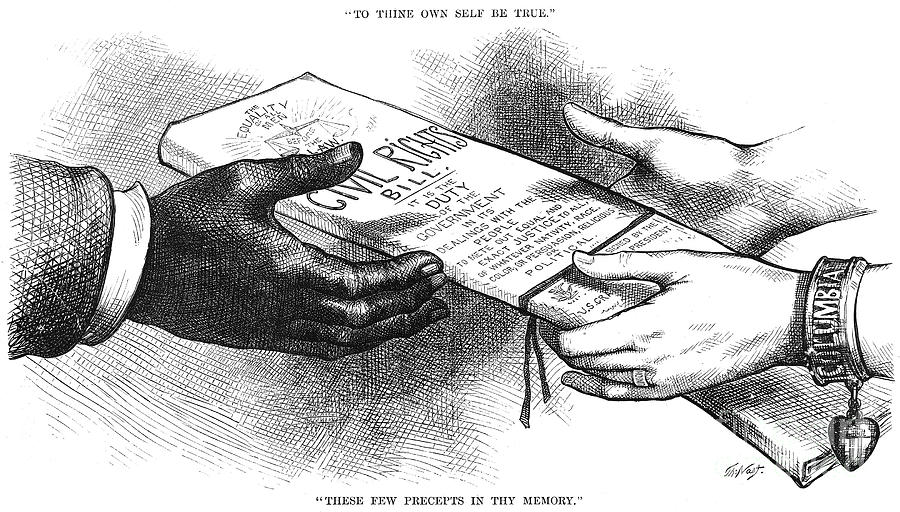
Lincoln and those who saved the nation began the transformation from a slave based to a free based economy, culture, every aspect of society. The Greatest Generation saved the world from Fascists and Nationalists. The Boomers and Gen X saved the Free World from the Russians. From Levi Strauss, through John Pemberton, William Harley and the Davidson brothers, and to Steve Jobs and Bill Gates, the intersection of American culture and invention, a segment of people around the world want to come here to be a part of our story.
Football, baseball, and basketball are inherently American so much so that Winthrop’s beacon draws athletes from the world over to join our professional ranks. Bronko Nagurski was born . . . in Canada. He played with the Bears in the 1930s and the best college player award is named after him. He is in the Hall of Fame. In the 1960s, Jan Stenerud came to the US on a ski scholarship but ended up playing in the NFL in the 1970s and 1980s. He is in Canton Ohio as a place kicker. He played a few years with the Green Bay Packers. Cuban baseball players were a known commodity in dugouts across this country in the 1950s. Mike Guerra played 14 seasons in the big leagues beginning in 1937. More recently there are Albert Pujols and of course our own Houston Astros’ shortstop Carlos Correa. No, I’m just testing you. Correa is from Puerto Rico. Puerto Rico is part of the US so Puerto Ricans are Americans. Correa is an American. And in basketball, the Houston Rockets have had two renowned players born in Africa: Dikembe Mutombo and Hakeem Olajuwon.
Those are exceptional people in their own field, just like these American citizens are exceptional in their own ways: Susana Jones, Frank Buckles, Jane Little, Thomas Edison, J. Robert Oppenheimer, Steve Jobs, Teddy Roosevelt, Harry Truman, and Ronald Reagan, to name a few.
Ok, that’s the groundwork. Let’s start our story.
Any questions, complaints, gripes, moans, or to offer assistance, please contact me at james.rossnzzal@hccs.edu.
- For example, see the book El Cinco de Mayo: An American Tradition, by David Hayes-Bautista. Excerpts can be read at https://californiahistoricalsociety.blogspot.com/2017/05/cinco-de-mayo-two-wars-two-nations-and.html Last accessed 3 Jan 2019. ↵
- https://www.congress.gov/111/plaws/publ94/PLAW-111publ94.htm ↵
- https://sputniknews.com/us/201806031065056889-canada-insulted-us-tariffs/ Last viewed 24 Nov 2018 ↵
- https://www.bbc.com/news/world-us-canada-44394156 ↵
- Originally found here http://www.nate-thayer.com/draft-dodger-donald-trump-seeks-job-of-u-s-military-commander-in-chief/ ↵
- https://www.cnn.com/2018/01/11/politics/immigrants-shithole-countries-trump/index.html ↵
- https://www.winthropsociety.com/doc_charity.php ↵
